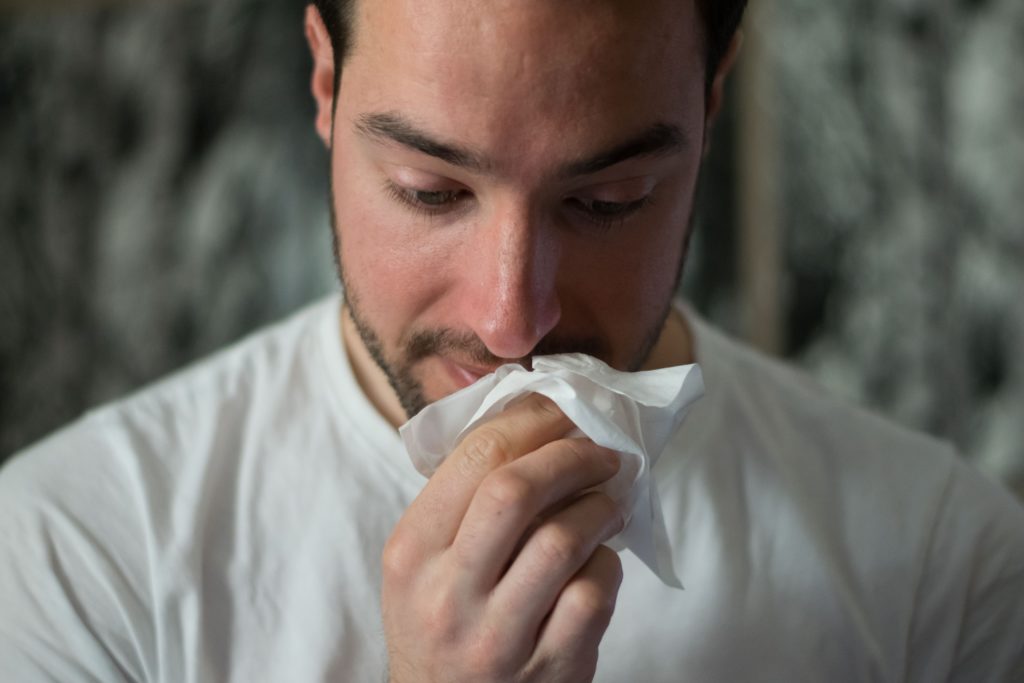The recent record-breaking warm weather has seen hay-fever season well underway
Hay fever is a common condition that affects up to one in five people. It is an allergic reaction to the pollen released by plants. It can occur at any age, although it usually begins in childhood, and occurs more commonly in boys.
Proteins in the pollen cause the nose, eyes, throat and sinuses to become swollen, irritated and inflamed – causing cold-like symptoms such as sneezing, runny nose and itchy eyes. Headache, earache and fatigue may also occur. Those with asthma may also feel short of breath and may have a wheeze or cough.

There’s no cure for hay fever and it can’t be prevented but taking the following steps can help to ease your symptoms:
- Keeping an eye on the pollen count forecast daily can give you an idea of when the pollen count is expected to be high – it’s best to stay indoors if possible when the pollen count is high (pollen count tends to be higher on warmer, dry days and on rainy days pollen count tends to be lower)
- Wearing wraparound sunglasses can stop pollen from getting into your eyes
- A hat with a peak or wide brim can help keep pollen from your eyes and face
- Avoid opening doors and windows – especially early in the morning and evenings
- Shower, wash your hair and change your clothes after being outside
- Avoid drying clothes outside when the pollen count is high
- Vacuum regularly and dust with a damp cloth
- Pets can also carry pollen so try to avoid bringing pets into the house if possible
- Do not smoke or be around smoke as this can worsen symptoms
- Avoid cutting the grass, walking across grass or raking leaves
- Do not keep fresh flowers in the house
- Applying Vaseline around the nostrils can help to provide a barrier to pollen entering the nostrils
- Keep car windows closed when driving, a pollen filter can also be fitted into car air vents
What treatments are available to help symptoms?
Antihistamines can provide some relief from mild hay fever symptoms. You can buy antihistamines from your local pharmacy available as tablets, eye drops or nasal sprays – speak to your pharmacist or doctor for advice on the best product for you. A combination of products might be required to provide relief from symptoms.

Antihistamines can prevent the allergic reaction from occurring and can help with symptoms of itching, sneezing and a runny nose. Treatment should be taken regularly to be effective. Decongestants are available over-the-counter to ease symptoms of congestion or a blocked nose.
If your symptoms become severe or worsen you should speak to a GP. A GP may be able to suggest different prescription medication such as steroids, to help reduce inflammation and swelling.
For more information on hay fever and managing symptoms see Allergy UK.
If you are suffering from hay fever and would like some further help and advice, why not download our app? Our experienced GPs are available 24/7 via telephone, video or home visiting consultations for medical advice. Use code ZOOMSPRING for £5 off your next ZoomDoc consultation
